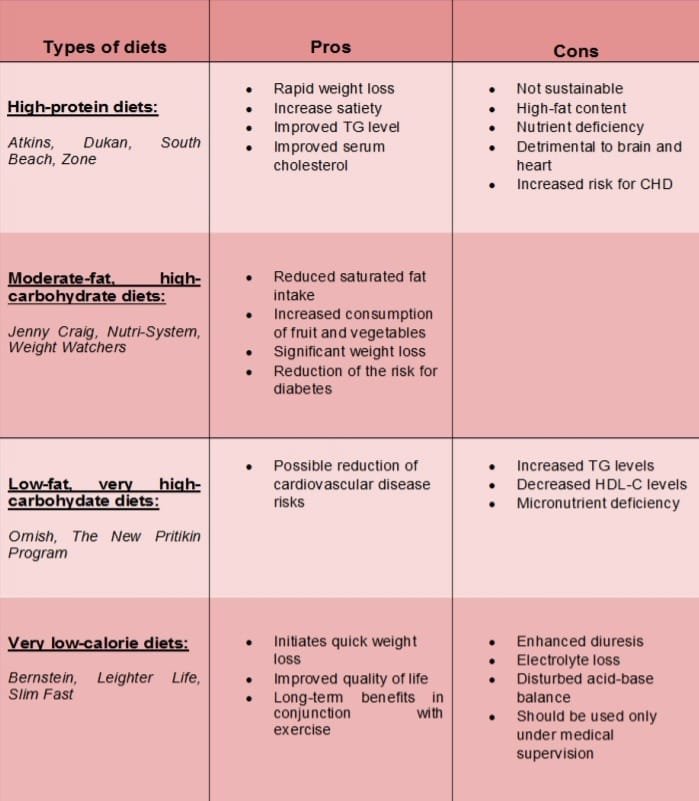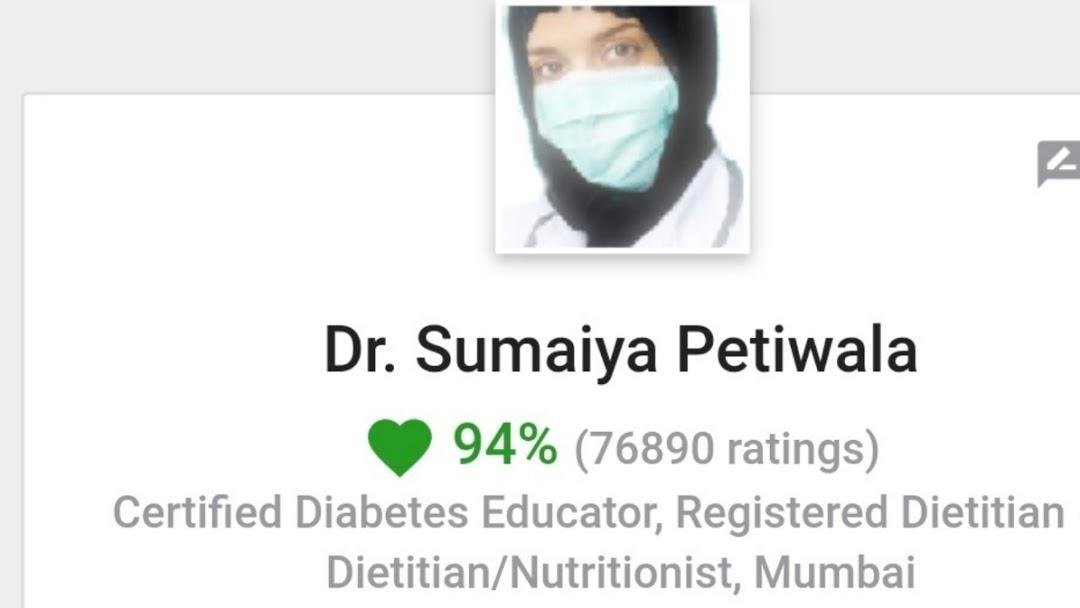Navigating the complexities of health and nutrition can be challenging. That’s why integrating medical expertise with personalized dietary guidance is crucial for effective healthcare. As a doctor and registered dietitian with over 14 years of experience, Dr. Sumaiya Petiwala offers unique insights into the essential role of nutrition in medical practice and patient care.
The Critical Link Between Nutrition and Medical Education: Enhancing Patient Care
Table of Contents
Nutrition is an integral part of our health, yet it remains a surprisingly under-emphasized area in many medical education programs. As both a doctor and a registered dietitian with over 14 years of experience, I’ve observed firsthand that many doctors are negligent about dietary principles of many illness as they have negligible training in medical nutrition therapy (MNT). This blog post aims to shed light on the importance of nutrition education in medical training and its impact on patient care.
The Current State of Nutrition Education in Medical Schools
According to an American Heart Association science advisory, most medical schools do not mandate extensive training in nutrition. On average, medical students spend less than 20 hours on nutrition during their four years of schooling. Even then, the focus is often on basic nutrients like proteins and carbohydrates rather than practical skills such as meal planning or motivational interviewing.

This limited exposure leaves many doctors feeling ill-prepared to offer detailed, evidence-based nutritional advice.
The Importance of Comprehensive Nutritional Guidance
Nutrition plays a crucial role in preventing and managing chronic diseases. Conditions such as diabetes, hypertension, high cholesterol, and obesity can often be significantly improved with the right dietary interventions. Patients need guidance on not just what to eat but also how to implement healthy eating habits into their daily lives.
For instance, understanding the impact of certain foods on blood sugar levels is vital for diabetes management. Similarly, knowing how to reduce sodium intake can help control high blood pressure. Effective nutritional counseling involves more than just knowledge of nutrients; it requires practical skills in meal planning and patient motivation.
Bridging the Gap: The Role of Registered Dietitians and Nutritionists
Given the Importance of dietary interventions in improving the outcomes of almost all the illnesses, Registered dietitians and nutritionists play a pivotal role in healthcare. These professionals specialize in providing personalized nutritional advice and developing meal plans tailored to individual needs. They are trained in the latest dietary guidelines and understand how to use nutrition to manage and prevent disease.
In a multidisciplinary healthcare team, dietitians and nutritionists work alongside doctors to ensure patients receive holistic care. This collaboration enhances patient outcomes by combining medical treatment with nutritional interventions, leading to more comprehensive and effective care plans.
The Limitations of Nutrition Counseling in Modern Medical Practice
In today’s healthcare landscape, primary care physicians are often the first point of contact for patients seeking guidance on a wide range of health issues, including diet and nutrition. However, despite the critical role of nutrition in preventing and managing chronic diseases, many doctors find themselves ill-equipped to provide comprehensive nutritional advice. This limitation stems primarily from two key factors: inadequate nutrition education in medical training and the constraints of time in everyday clinical practice.
Inadequate Nutrition Education in Medical Training
The crux of the issue begins in medical school, where the curriculum is densely packed with subjects on anatomy, physiology, pathology, pharmacology, and other clinical sciences, nutrition education, despite its importance, is often sidelined or integrated only minimally into these subjects as a small sub-unit. According to a 2010 report by the National Academy of Sciences, medical students in the United States receive an average of just 19.6 contact hours of nutrition instruction during their medical school careers, which is less than 1% of total instructional time. Moreover, the content often focuses more on biochemistry and nutrient metabolism rather than practical, patient-oriented counseling skills like meal planning and dietary assessment.
This lack of comprehensive nutritional training is mirrored worldwide, with many medical schools offering insufficient coursework in nutrition. As a result, physicians may graduate with a robust understanding of disease pathology but not the practical dietary strategies needed to manage these conditions effectively.
Time Constraints in Clinical Practice
Even if physicians do possess some basic nutritional knowledge, the typical structure of modern medical appointments does not allow ample time to delve into detailed dietary counseling. Most primary care visits last between 15 to 20 minutes or even less than that, during which doctors must diagnose health issues, manage ongoing conditions, perform physical examinations, answer patient questions, and document all pertinent information. Within this compressed timeframe, providing in-depth nutrition advice is often impractical.
Moreover, the increasing administrative burdens and documentation requirements in healthcare further squeeze the available time doctors have to engage in meaningful conversations with their patients. These pressures can lead to shorter and more transactional visits, where complex topics like nutrition may be glossed over or deferred.
The Indian Scenario: Lack of Dietetic Training in the MBBS Curriculum
In India, the scenario is quite similar to the global context regarding the inclusion of nutrition education in medical training. The Bachelor of Medicine, Bachelor of Surgery (MBBS) curriculum, as governed by the National Medical Commission (NMC), is comprehensive and rigorous, focusing extensively on various aspects of medicine and surgery. However, despite the heavy burden of nutrition-related diseases in the country, the curriculum provides limited formal education on nutrition and dietetics.
In the MBBS curriculum, the subject of nutrition, if covered at all, is usually integrated into broader subjects such as biochemistry or preventive and social medicine. This integration often leads to a superficial treatment of the subject, with a focus more on the biochemical roles of nutrients rather than practical, patient-centered dietetic advice or the socio-economic aspects of nutrition in the Indian context. Furthermore, the training is rarely hands-on and does not require any internship in Dietetics department and does not typically prepare future physicians to engage in detailed dietary counseling or to tackle complex nutritional issues that are common in clinical practice.
Challenges Specific to India
India faces unique nutritional challenges, including high rates of malnutrition and a rising incidence of lifestyle diseases such as diabetes and cardiovascular conditions, which are heavily influenced by diet. The dual burden of undernutrition and overnutrition creates a complex healthcare environment where tailored nutritional advice should be an integral part of patient care. Unfortunately, the current MBBS curriculum does not have adequately prepare physicians to handle these challenges effectively.
The lack of emphasis on practical nutrition education is particularly concerning in a country where diet-related factors contribute significantly to morbidity and mortality. A more robust nutritional training within the MBBS program could equip future physicians with the knowledge and tools needed to provide effective dietary advice, improving public health outcomes.
Ready to take the first step towards a healthier you? Fill out our patient history form to receive personalized advice from Dr. Sumaiya, a registered dietitian and doctor. Get free, expert guidance tailored to your needs via email!
The Impact of Insufficient Nutritional Counseling
The consequences of inadequate nutritional counseling in primary care are significant. Poor diet is a major risk factor for noncommunicable diseases such as heart disease, stroke, diabetes, and certain cancers, which are among the leading causes of death globally. Without appropriate dietary guidance, patients may struggle to make the changes necessary to prevent or manage these conditions, potentially leading to worsened health outcomes and increased healthcare costs.
Bridging the Gap: The Role of Dietitians and Integrated Care Models
To address these gaps, several strategies can be employed. One effective approach is the integration of registered dietitians into the primary care team. Dietitians are experts in nutrition and can provide the detailed dietary counseling that doctors often cannot. Collaborative care models where dietitians work alongside doctors can lead to more comprehensive care, improved patient outcomes, and a more efficient use of healthcare resources.
Additionally, increasing the nutrition education component in medical school curricula and offering continuing education opportunities in nutrition for practicing physicians can gradually elevate the standard of nutritional counseling provided by doctors.
How Patients Can Advocate for Better Nutritional Guidance from Their Healthcare Providers
Advocating for better nutritional guidance is crucial for achieving optimal health outcomes. Here are some steps patients can take:
- Seek the right Dietitians: Ideally, seeking out professionals who possess both a medical degree and training in dietetics offers the most comprehensive approach. These practitioners can provide not only personalized dietary guidance but also understand the complex interplay between nutrition and medical conditions, ensuring that your health management is both holistic and effective. Consulting someone like Dr. Sumaiya Petiwala, who is specialized in both fields, can significantly enhance the quality of care you receive, providing tailored advice that addresses both your immediate health concerns and your long-term wellness goals.
- Be Informed: Educate yourself about basic nutrition principles related to your health condition. Reliable sources include reputable health websites, books, and peer-reviewed journals. This knowledge will help you have more productive conversations with your healthcare providers.
- Follow-Up: Schedule follow-up appointments to discuss your progress with dietary changes. This ongoing communication ensures you receive continuous support and adjustments to your nutrition plan as needed.
- Share Your Goals: Communicate your health and wellness goals clearly to your healthcare provider. Whether it’s weight loss, managing a chronic condition, or improving overall health, your goals will guide the nutritional advice and support you receive.
- Utilize Technology: Use apps and tools to track your diet and health metrics. Sharing this data with your registered dietitian can provide concrete information to discuss during appointments.
Conclusion
Nutrition is a cornerstone of good health, and its importance cannot be overstated. While the current state of nutrition education in medical schools leaves much to be desired, there is hope for improvement. By enhancing training for doctors and fostering collaboration with dietitians and nutritionists, we can bridge the gap and ensure patients receive the comprehensive nutritional care they need.
Consulting with Dr. Sumaiya Petiwala provides a unique and highly beneficial healthcare experience due to her dual expertise as both a seasoned doctor and a registered dietitian. This combination allows her to address a wide array of medical conditions with a depth of understanding that encompasses both the clinical aspects and the nutritional foundations of health. Her ability to integrate dietary management into medical treatment plans ensures that patients receive tailored advice that supports their overall well-being and specific medical needs. Whether managing chronic diseases, addressing weight concerns, or improving general health through lifestyle changes, Dr. Sumaiya’s holistic approach empowers her patients with the knowledge and tools necessary for sustained health improvements. Her comprehensive care model not only treats existing conditions but also focuses on prevention, making her an invaluable resource for anyone seeking to enhance their health through informed, expert guidance.
At Dr. Sumaiya’s NutriCare, we are committed to providing expert guidance tailored to your unique health needs. Get quick and personalized advice by filling out our patient history form. Dr. Sumaiya, a registered dietitian and doctor, will review your information and provide free, expert guidance via email.
References
- Adams, K. M., Lindell, K. C., Kohlmeier, M., & Zeisel, S. H. (2006). Status of nutrition education in medical schools. *The American Journal of Clinical Nutrition*, *83*(4), 941S-944S. https://doi.org/10.1093/ajcn/83.4.941S
- Crowley, J., Ball, L., & Hiddink, G. J. (2019). Nutrition in medical education: a systematic review. *The Lancet Planetary Health*, *3*(9), e379-e389. https://doi.org/10.1016/S2542-5196(19)30171-8
- National Academies of Sciences, Engineering, and Medicine. (2010). *Nutrition Education in U.S. Medical Schools*. The National Academies Press. https://doi.org/10.17226/12986
- Devries, S., Willett, W., & Bonow, R. O. (2019). Nutrition Education in Medical School, Residency Training, and Practice. *JAMA*, *321*(14), 1351–1352. https://doi.org/10.1001/jama.2019.1581




